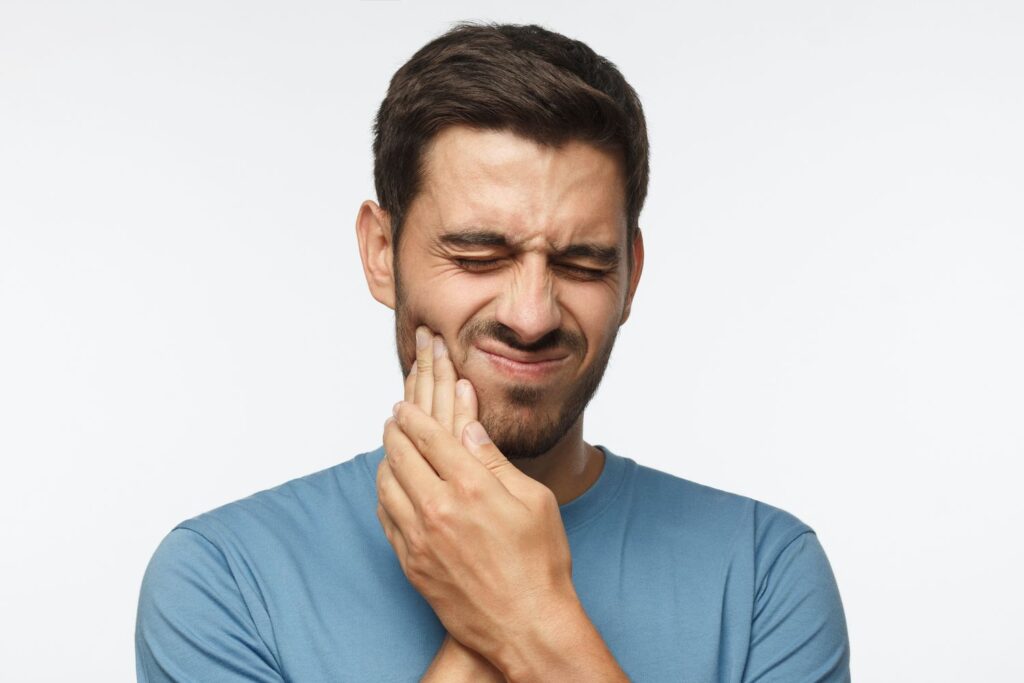A dental emergency can strike unexpectedly, causing you a lot of pain and distress. In these situations, it is important to take prompt action and provide proper first aid. This will make a significant difference in preserving your oral health and reducing discomfort. Huntsville Family Dental provides their patients with an emergency dentist in Huntsville, TX, when an unexpected dental accident strikes. Emergency dentistry is one of the general dental care services we provide to the public in Huntsville.


What to Do in a Dental Emergency
It is crucial to remember that the first step in any dental emergency is to call Huntsville Family Dental immediately and make an appointment. Our team of dental professionals will get you in as soon as possible. We will also provide you with any necessary care and guidance tailored to your specific situation. Meanwhile, here’s what you can do in various common dental emergencies until you can be seen by your dentist:
Severe Toothache
Start by rinsing your mouth with warm water and gently flossing around the affected tooth to remove any debris. Avoid placing aspirin directly on the gum, as it can damage the soft tissues. You can take the recommended dosage of an over-the-counter pain reliever to help manage the pain. Just avoid placing it directly on the gums or teeth.
Knocked Out Tooth
It is important that you handle the tooth by the crown (top) and not the root. Start by rinsing the tooth gently with water, avoiding the root area. Gently try to reinsert the tooth into the socket. If this isn’t possible, place the tooth in a container of milk or saliva and bring it to the dentist immediately. Time is crucial in trying to save a knocked-out tooth.
Loose Tooth
The best thing you can do with a loose tooth is apply light pressure to reposition the tooth to its original position without forcing it. Bite down gently to keep it in place until you reach the dentist. Avoid chewing on that side and opt for a soft diet until you receive professional care.
Dental Abscess
An abscess is a severe infection that requires immediate dental attention. It is important to seek help promptly. Until you can get to the dentist, rinse your mouth out with warm salt water to ease the pain and draw out some of the infection. Avoid hot or cold foods and drinks. You can take over-the-counter pain relievers to help manage the discomfort.
Cracked Tooth
Rinse your mouth gently with warm water to clean the area. Apply a cold compress outside the mouth to reduce swelling if it is present. Avoid chewing on the affected side. Your dentist will assess the severity of the crack and recommend appropriate treatment, which may include a dental crown or root canal therapy.
Chipped Tooth
We ask that you try to save any chipped-off pieces. Rinse your mouth with warm water, and apply gauze if there is bleeding. Use a cold compress to minimize swelling. Avoid chewing on the damaged side. The dentist will assess the extent of the damage and may repair the tooth using bonding material or recommend a dental crown.
Sensitivity to Hot and Cold
This symptom could mean a lot of things. Start by avoiding hot or cold foods and beverages. Begin using toothpaste for sensitive teeth and a soft-bristled toothbrush. If the sensitivity persists, contact your Huntsville, TX dentist. Prolonged sensitivity may indicate an underlying issue like a cavity or exposed nerve.
A Dental Crown or Filling that has Fallen out or Become Loose
If possible, clean the dental crown or filling and reinsert it with over-the-counter dental cement. Never use household glue or adhesives. If you cannot reinsert it, keep the crown or filling in a safe place and bring it to your dentist. A loose crown or filling should be avoided until you can see your dentist. Do not chew on that side of the mouth, and do not wait too long, as the tooth can shift or decay without the restoration properly in place.
Broken Denture
Never attempt to fix a denture by yourself. A DIY denture fix can damage it permanently or affect your bite. Instead, make an appointment, place the broken pieces in a container, and bring them with you to your dentist appointment. Your dentist will assess the damage and figure out the best course of action.
Severe Soft Tissue Injury Inside the Mouth
Start by gently cleaning the area with warm water. Then apply pressure with a clean cloth or gauze to stop the bleeding. You may use a cold compress to minimize the swelling. If the bleeding persists after applying pressure for 15-20 minutes, or if the injury is severe, seek immediate medical attention at the nearest emergency room.
Do not hesitate to call our office in the event of a dental emergency. We provide emergency dentistry services in Huntsville, TX to our patients who need quick professional help. Call us today for help with your dental emergency at (936) 295-5437.
